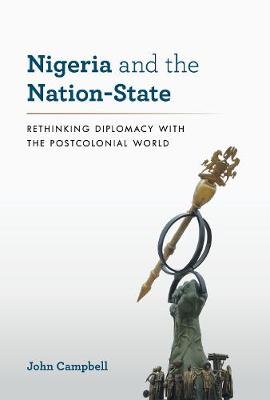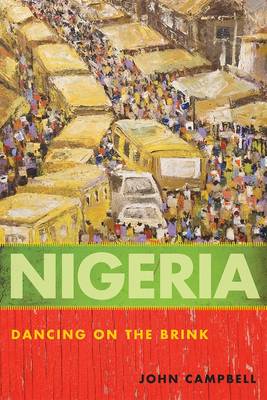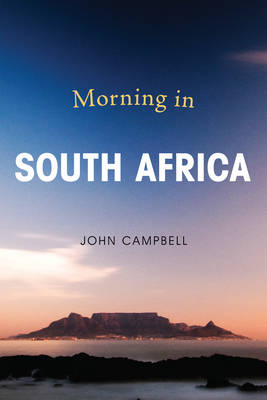Council on Foreign Relations Book
3 total works
Nigeria matters. It is the largest African economy, projected to become the third most populous country in the world by 2050, with its democratic aspirations are challenged by rising insecurity. It is also misunderstood. Leading expert John Campbell traces the mistakes and misunderstandings of British colonial rule that forced a territory with hundreds of distinct languages, ethnic groups, and religions, no history of political unity, and no history even of similar political organization, into a single unit. After Nigerian independence in 1960,
a civil war that cost the lives of one million Nigerians ended in a generation of military rule that ended only in 1999. When the military finally returned to their barracks, what was left? It was not-and never had been-a nation-state like those of Europe. It is still not quite a nation because Nigerians are not yet united by language, religion, culture, or a common national story. It is not quite a state because the government is weak and getting weaker, beset by Boko Haram in the northeast, intercommunal violence across the middle of the country, an insurrection in the Niger Delta, and a country-wide crime wave.
Instead, it is something the author calls a prebendal-archipelago. It is prebendal because Nigeria's political leaders take public money for private purposes. Not only is this corruption on a massive scale, it is also what keeps a fragile state from ultimately falling apart. The competing elites who ultimately benefit also cooperate to keep those benefits coming. Much of that public money is fueled by revenue from Nigeria's state-owned oil. The oil-heavy focus of the government has stymied the development of other sectors. It is an archipelago because the state cannot be said to actually have control over much of its territory.
This deeply knowledgeable book is an antidote to those who would make the mistakes of Vietnam, Afghanistan, and Iraq, mistakes based on misunderstanding, in Nigeria. Up to now, such mistakes have largely been avoided, but Nigeria will soon-and Campbell argues already does-require much greater attention by the West. \
a civil war that cost the lives of one million Nigerians ended in a generation of military rule that ended only in 1999. When the military finally returned to their barracks, what was left? It was not-and never had been-a nation-state like those of Europe. It is still not quite a nation because Nigerians are not yet united by language, religion, culture, or a common national story. It is not quite a state because the government is weak and getting weaker, beset by Boko Haram in the northeast, intercommunal violence across the middle of the country, an insurrection in the Niger Delta, and a country-wide crime wave.
Instead, it is something the author calls a prebendal-archipelago. It is prebendal because Nigeria's political leaders take public money for private purposes. Not only is this corruption on a massive scale, it is also what keeps a fragile state from ultimately falling apart. The competing elites who ultimately benefit also cooperate to keep those benefits coming. Much of that public money is fueled by revenue from Nigeria's state-owned oil. The oil-heavy focus of the government has stymied the development of other sectors. It is an archipelago because the state cannot be said to actually have control over much of its territory.
This deeply knowledgeable book is an antidote to those who would make the mistakes of Vietnam, Afghanistan, and Iraq, mistakes based on misunderstanding, in Nigeria. Up to now, such mistakes have largely been avoided, but Nigeria will soon-and Campbell argues already does-require much greater attention by the West. \
An updated edition of this book is now available. Nigeria is the African country of greatest strategic importance to the United States. And it is in danger of failing as a state. John Campbell, former U.S. Ambassador to Nigeria, in Nigeria: Dancing on the Brink, analyzes the hollowing out of Nigerian governance, the insurrection in the oil patch, and religious and ethnic conflict in the North. Looking forward to the elections in 2011, he suggests policy options for the United States to help Nigeria escape state failure.
This incisive, deeply informed book introduces post-apartheid South Africa to an international audience. South Africa has a history of racism and white supremacy. This crushing historical burden continues to resonate today. Under President Jacob Zuma, South Africa is treading water. Nevertheless, despite calls to undermine the 1994 political settlement characterized by human rights guarantees and the rule of law, distinguished diplomat John Campbell argues that the country's future is bright and that its democratic institutions will weather its current lackluster governance.
The book opens with an overview to orient readers to South Africa's historical inheritance. A look back at the presidential inaugurations of Nelson Mandela and Jacob Zuma and Mandela's funeral illustrates some of the ways South Africa has indeed changed since 1994. Reviewing current demographic trends, Campbell highlights the persistent consequences of apartheid. He goes on to consider education, health, and current political developments, including land reform, with an eye on how South Africa's democracy is responding to associated thorny challenges. The book ends with an assessment of why prospects are currently poor for closer South African ties with the West. Campbell concludes, though, that South Africa's democracy has been surprisingly adaptable, and that despite intractable problems, the black majority are no longer strangers in their own country.
The book opens with an overview to orient readers to South Africa's historical inheritance. A look back at the presidential inaugurations of Nelson Mandela and Jacob Zuma and Mandela's funeral illustrates some of the ways South Africa has indeed changed since 1994. Reviewing current demographic trends, Campbell highlights the persistent consequences of apartheid. He goes on to consider education, health, and current political developments, including land reform, with an eye on how South Africa's democracy is responding to associated thorny challenges. The book ends with an assessment of why prospects are currently poor for closer South African ties with the West. Campbell concludes, though, that South Africa's democracy has been surprisingly adaptable, and that despite intractable problems, the black majority are no longer strangers in their own country.


